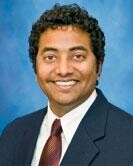- Adult Heart DiseaseDiseases of the arteries, valves, and aorta, as well as cardiac rhythm disturbances
- Pediatric and Congenital Heart DiseaseHeart abnormalities that are present at birth in children, as well as in adults
- Lung, Esophageal, and Other Chest DiseasesDiseases of the lung, esophagus, and chest wall
- ProceduresCommon surgical procedures of the heart, lungs, and esophagus
- Before, During, and After SurgeryHow to prepare for and recover from your surgery
February 21, 2018

Having worked in clinical medicine for 20 years, I have witnessed a shift in the understanding of how smoking impacts recovery and treatment from different diseases, especially after surgery. In the past, there used to be an acceptance of smoking, especially for people with a new diagnosis of cancer. You’ve smoked all of these years, so why quit now? It actually turns out that active smoking has a negative effect on many aspects of recovery from cardiothoracic surgery and for any surgery, really.
Impact on disease
Active smoking recently has been shown to make lung cancers grow more quickly and be more resistant to chemotherapy and radiation. We don’t know if this is the case for all cancers, but we suspect that other cancers that are associated with smoking (i.e., esophageal cancer) may have similar concerns. Active smoking results in higher blood pressure and narrowing of your blood vessels which can make chronic (long-term) heart problems worse. We have known for decades that long-term smoking can lead to heart disease and lung cancer, but we now realize that even short-term smoking can have an impact on these diseases and how they progress.
Impact on the body
Active smoking has been shown to impact the inner lining of the airway, decreasing the body’s ability to clear mucus from the lungs. After surgery, when someone is struggling to cough and breathe due to pain, this mucus will build up in the lungs and can cause a pneumonia. Many studies in cardiac and lung surgery have shown an increased risk of pneumonia after surgery for active smokers. Some of these same studies have shown a higher risk of dying after surgery in active smokers, compared to former or non-smokers. Plastic surgeons have refused to operate on patients who are smoking, as many of their “reconstructions” will heal poorly in people who are smoking. Other surgeons have not been as focused on this, but more recent research suggests that quitting smoking 3-4 weeks before surgery can significantly reduce the risk of complications after surgery. It takes the inner lining of the airway that 3-4 weeks to heal so that people can cough and get rid of the mucus that builds up in their lungs. People who have quit smoking usually note a more prominent cough those first few weeks after quitting that relates to this “healing process.”
As described earlier, smoking contributes to narrowing of the blood vessels, which after surgery can decrease healing. Surgical wound problems (where the incisions were made) can be very hard to deal with after heart, lung, or any chest surgery. Smoking is a risk factor for mediastinitis, or an infection of the breast bone after surgery, which can be extremely hard to treat. Mediastinitis requires long-term antibiotics and often surgery to remove some or all of the breast bone with plastic surgery flaps to fill the space. Infections in these areas can lead to breathing issues and chest wall instability.
How can I quit?

Nicotine is one of the most addictive substances known to man. Quitting smoking is extremely hard and there is no one single best way to do it. Quitting “cold turkey” works for some, but others benefit from using medications like Chantix or Wellbutrin. Most doctors can put you in touch with a smoking cessation program, which may include counseling, medications to help you quit, and/or nicotine alternatives (patches, gum, etc.). E-cigarettes have not been studied as extensively yet, but still include inhaled nicotine, which affects the lung’s inner lining and narrows the blood vessels. Nicotine replacements and chewing tobacco have some of these same risks, but aren’t inhaled into the lungs the way cigarettes and e-cigarettes are.
For more information on quitting smoking, you can access the smoking cessation brochures available in the resources section of this website.
The opinions expressed in this article are those of the author and do not necessarily reflect the views of The Society of Thoracic Surgeons.

